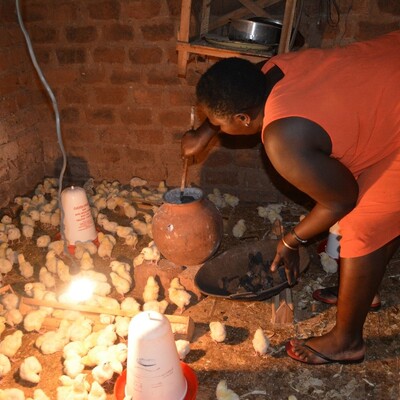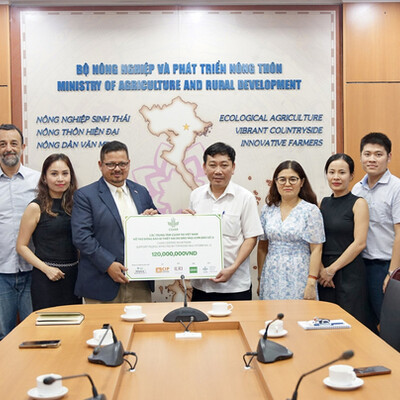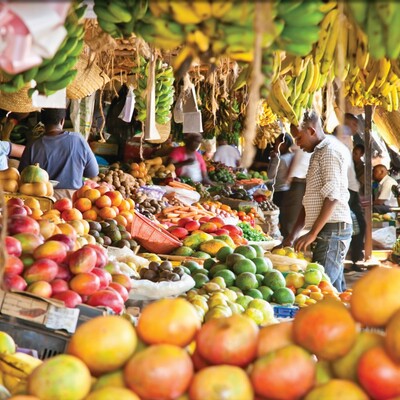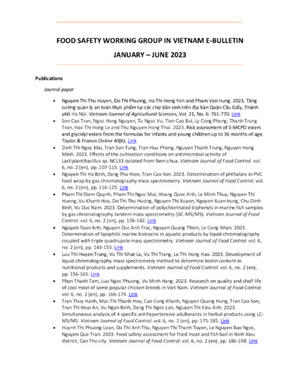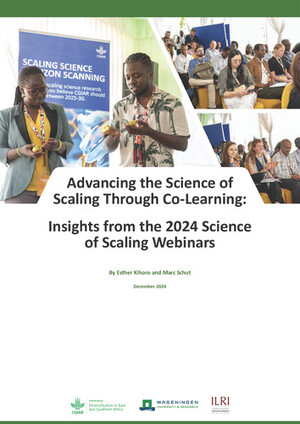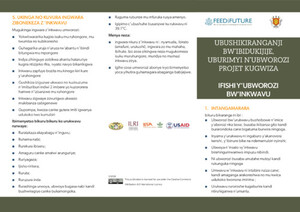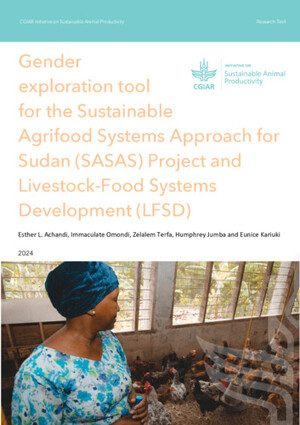
From framework to implementation: ILRI Impact at Scale program publishes first scaling readiness analysis on livestock innovations
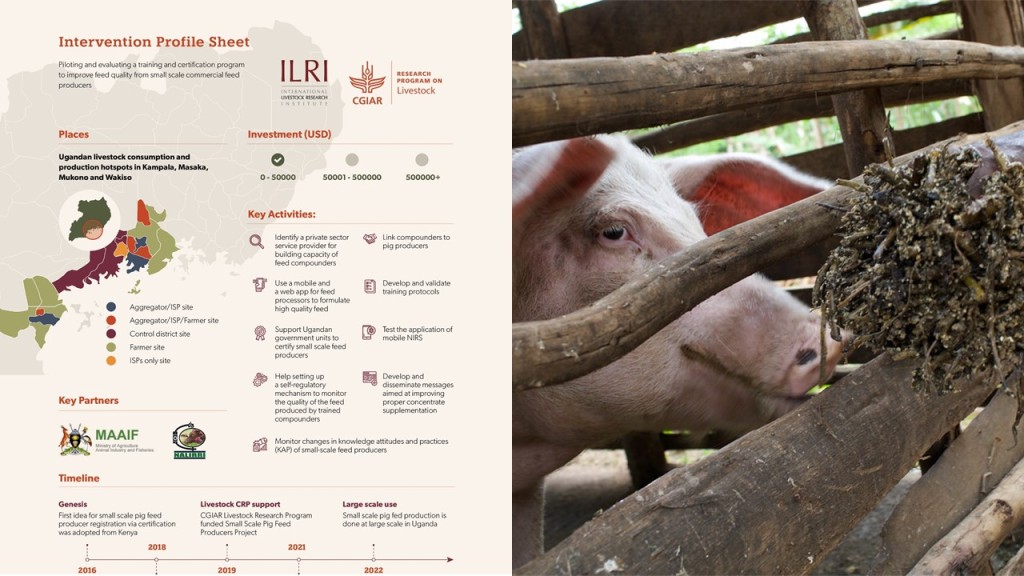
The Impact at Scale (I@S) program of the International Livestock Research Institute (ILRI) has published the ‘Scaling Readiness report and scaling plan for training and certification approach for small-scale pig producers in Uganda.’ This is the first of a series of Scaling Readiness reports and scaling plans being prepared by the institute.
The publications in the series will offer deep dive analyses of selected livestock technologies and other non-technological innovations in fields such as capacity development, market arrangements and stakeholder engagement using the scaling tools featured in the ‘scaling better together’ framework. Moreover, these analyses will give insights on the bottlenecks for scaling ILRI innovations, provide actionable recommendations, and give evidence on the current scaling potential of livestock system innovations in specific geographical contexts for different impact goals.
The new report focuses on the training and certification approach, a component of the CGIAR Research Program on Livestock’s ‘Improving pig productivity and incomes through an environmentally sustainable and gender-inclusive integrated intervention package in Uganda’ known as ‘Piloting and evaluating a training and certification business model to improve feed quality from small-scale commercial feed producers.’ The approach addresses the knowledge and attitude gaps in producing high-quality pig feed in Kampala, Masala and Mukono in Uganda. By adopting lessons from similar programs developed and implemented successfully in East Africa, the approach will contribute to improved pig productivity, higher incomes of small-scale pig producers and safer pig-based food in Uganda.
The Scaling Readiness assessment initially helped the Livestock CRP’s Priority Country Project component teams to develop a shared understanding of the key characteristics of the project in Uganda. Later, it showed the additional components and innovations that can increase the performance of the Training and Certification Approach and its scalability in Uganda.
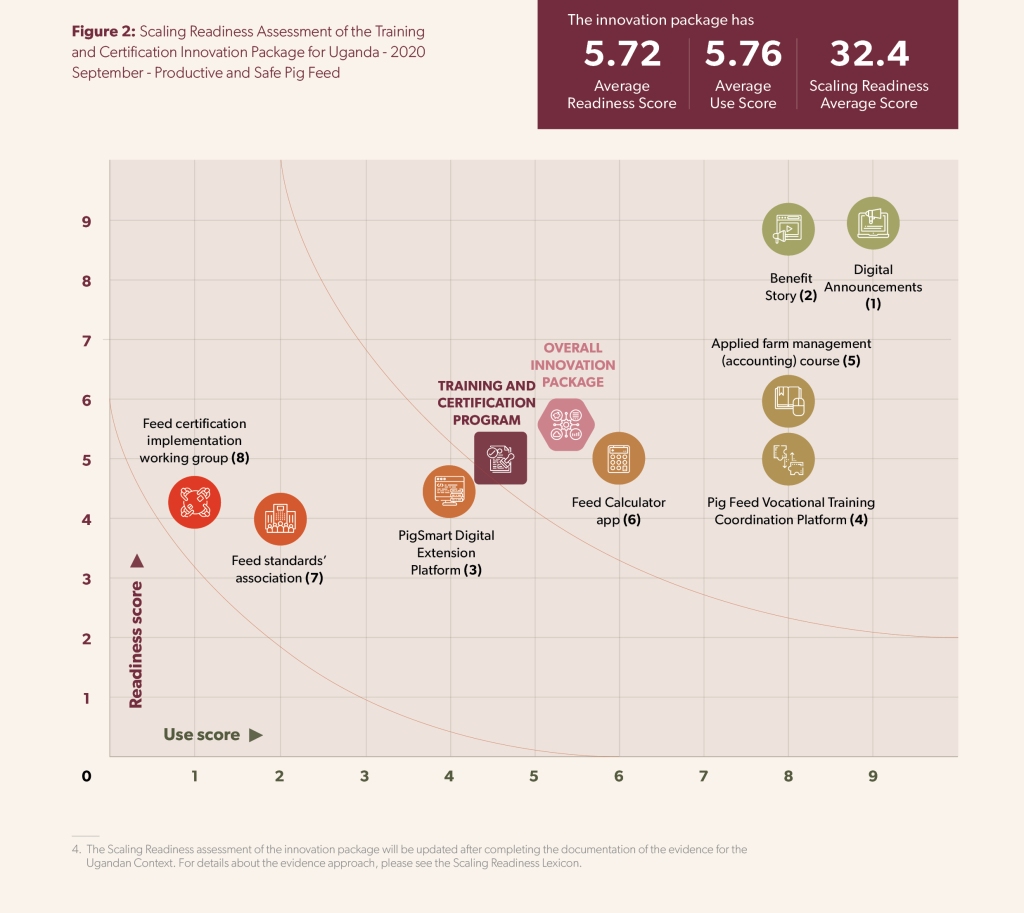
Having completed the Scaling Readiness assessment, the I@S team concluded that improving the content of the training and certification will not be sufficient to increase the use of the program at scale. Although there are merits in improving the design of the program by capitalizing on a pictorial-based blended learning approach, differentiating training options based on roles, scheduling the training in a flexible manner and creating an input-output mindset among the participants, the assessment shows that organizational innovations are critical for the success of the Piloting and evaluating a training and certification business model to improve feed quality from small scale commercial feed producers component.
The Scaling Report and scaling plan were presented to the project team working on the Training and Certification Approach, led by Ben Lukuyu, ILRI’s country representative in Uganda in November 2020. Lukuyu revealed that the Scaling Readiness assessment work has helped the Livestock CRP Uganda Pig Value Chain Project team to conceptualize project proposals differently. He said, ‘If I were to re-design the project, I would do it in a much more coherent and complete manner with all the stakeholders and the gaps in place.’ He added that ‘although the scaling process has come after two year since implementation of the project started, we will still be able to integrate the recommendations of the report. I believe these results will shape the direction of our implementation and bring stakeholders together to ensure the sustainability of the program.’
The Project team has already started implementing some of the report’s recommendations. For example, a pilot on quality assurance with local private sector partners is planned for 2021. There’s also a plan to bring finance actors onboard and engage with the farmers, input and service providers and aggregators. Furthermore, a feed certification implementation group will be set up with all stakeholders involved including the Ministry of Agriculture, Animal Industry and Fisheries of Uganda. Work on catalysing the feed standards association is also underway.
The I@S program has put in place infrastructure to effectively manage the scaling assessment process across ILRI including a robust data and digital ecosystem to efficiently collect, analyse and visualize its work. Iddo Dror, leader of the I@S program said, ‘It is great to see this first scaling report published. It has been a long and fascinating journey from the initial concept to where we are today, with a clear scaling framework and the ability to execute it. I’m excited for what’s on the horizon for 2021 with a series of assessments across the ILRI and Livestock CRP portfolio, and looking forward to collaborating to scale better, together.’
This report is a part of the overall ILRI I@S program support on scaling activities of ILRI and the Livestock CRP. I@S provides management support, frameworks and tools to ILRI and Livestock program staff and partners undertaking scaling-up activities. Since late 2019, I@S has been testing and validating its Scaling Framework together with the Livestock CRP Uganda priority country team by incorporating approaches and tools developed within and outside the CGIAR such as Scaling Scan, ASAT, and Scaling Readiness.
Download the full report: https://hdl.handle.net/10568/110324
Read more about ILRI’s Scaling Framework: https://www.ilri.org/news/ilri-adopts-new-framework-scaling-livestock-research-development
Download the scaling report: Scaling better together: The International Livestock Research Institute’s framework for scaling
Read more about Scaling Readiness: https://www.scalingreadiness.org/
Read more on the Uganda scaling scan workshop report: https://hdl.handle.net/10568/108046








